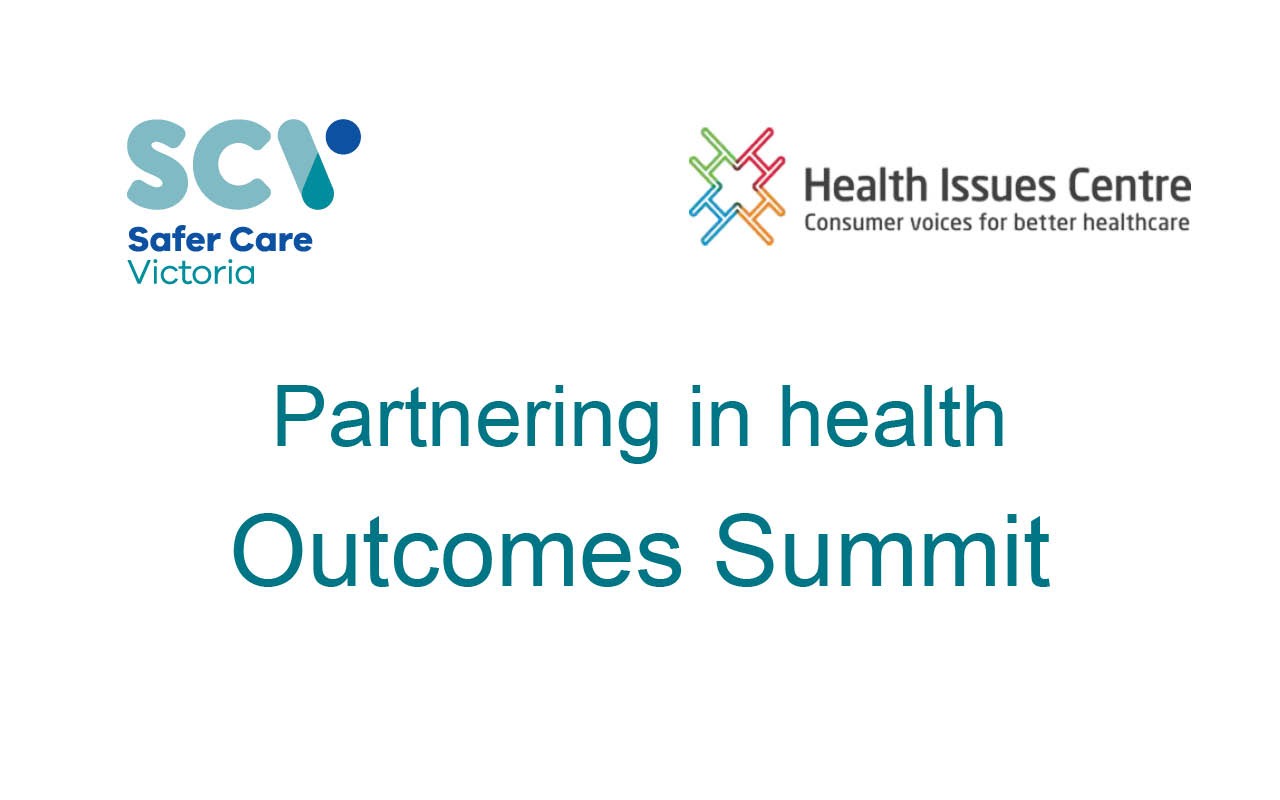Communication is a critical aspect of the health system and communicating poorly can have far reaching impacts on patient outcomes and experiences. Our Communications Specialist, Cassandra Jovic, has shared her thoughts on why good communication is so important in health and what we can do to improve it.
Quality communication is not just a ‘nice to have’ within the healthcare system, it can seriously impact safety. The Australian Commission on Safety and Quality in Health Care explains that “Communicating for safety involves the accurate and careful exchange of information about a person’s care between treating clinicians, members of a multidisciplinary team, and between clinicians and patients, families and carers.”
We define quality communication as being respectful, clear and simple, delivered in a friendly manner that invites questions and encourages open discussion. No one is intimidated or spoken down to by what is said or written.
When we talk about communication it’s important to remember that it’s not just what is said that has an impact; non-verbal communication including body language and tone are important. Written communications like letters, website content, presentations, leaflets and text messages are also a major source of information in healthcare and should be reviewed with consumers in mind.
Negative experiences are all too common
Unfortunately, many of us have left healthcare situations feeling that poor communication made the experience confusing or upsetting. Sometimes we even leave with incorrect information which can adversely impact our health. In fact communication errors are the most commonly cited underlying cause of complaints about the Australian health care system.
Feeling empowered to call it out
When I was pregnant, I had gestational diabetes and was offered a group session with a diabetes educator. The educator gave a presentation which I found quite informative; for most of it, her communication was clear and helpful.
She then arrived at the slide that explained the negative outcomes that our babies may experience because we had gestational diabetes, an important aspect of the course. Some of it was quite confronting and worrying, particularly for a heavily pregnant woman. Alarmingly there was no information about whether keeping diabetes under control would help us avoid these consequences.
This turned out to be her final slide, which she left on the screen for the remainder of the session (over 25 minutes), and I must admit it really upset me. So much so that I hung back after the session to speak to her about it. I explained that I work in communications and that having that as the final slide with no hope felt very demotivating and upsetting.
She said it was necessary to show us that we needed to take gestational diabetes seriously, however she hadn’t thought about whether it might demotivate us. We had a good discussion and she agreed to review it with this in mind.
I understand that not everyone would feel comfortable speaking up, however if you do, I recommend it as the educator genuinely hadn’t thought about it from that perspective before and we had a respectful conversation.
What to do if you experience poor communication
Depending on your specific experiences and the situation, there are a range of things you can do as a consumer to try and improve communication. Remember, communication is a two-way process.
This may include:
- Trying Check-back – a simple online module and tools that help you to develop skills in ‘checking back’ during a health appointment to understand what is being said and leave knowing you have all the right information.
- Writing a list of questions before you go to your appointment so that you don’t miss anything you want to know. There are a few tools to assist consumers to prepare before an appointment, including Question builder on the Health Direct website.
- During an appointment, asking any questions that come to your mind – there really are no silly questions when it comes to your health.
- Telling your health professional if there is something you don’t understand and getting them to clarify.
- Asking your health professional to write some notes or give you a fact sheet to make things clearer once you leave.
- Taking someone with you who can help advocate for you.
- Giving feedback in follow up appointments if something they said didn’t make sense after you left. It might help your health professional rethink or adapt their processes.
- Sending a follow up email with any additional questions you have after your appointment.
Clear communication for healthcare professionals
If you are a healthcare professional and are interested in ways of improving your communication you could try:
- Teach-back – a tool that has been developed for clinicians to ensure that consumers understand and feel empowered in their healthcare.
- Simplifying your language – a lot of clinical terms can be difficult to understand.
- Listen to what your patients say, if the same questions keep coming up, think about different ways you might convey information.
- Observe nonverbal communication of your patients – are they distressed or agitated? Adapt your communication style accordingly.
- Supply written communication where possible, a leaflet or email with key information so they have something to refer to afterwards. Also give them a way of asking follow-up questions.
Making a complaint
If you experience poor communication from healthcare professionals and try to raise it but get nowhere or feel that it would be extremely difficult bring up, you might consider making a complaint. Poor communication might feel like a small thing to complain about, however we know that clinicians communication can have a really profound impact on patient safety.
If you do want to make a complaint, all healthcare providers have an internal complaints process. They may have a form or email on their website that they direct you to, or you can call and speak to someone in management, and they should be able to guide you in the right direction.
If you make a complaint and don’t get a satisfactory response, you can then go to the Health Complaints Commission (VIC) or your state’s equivalent. You will need to fill in a form and then they will take your complaint through their process; you can read more about their FAQs here.
Final thoughts
We hope that you don’t experience poor communication in your healthcare experiences, however if you do, we hope you feel empowered to give feedback to help make a change. At HIC, we work to ensure consumer experiences are reflected in healthcare delivery, design and policy-making. If you have ideas or a story you would like to share with us, please email info@hic.org.au.






